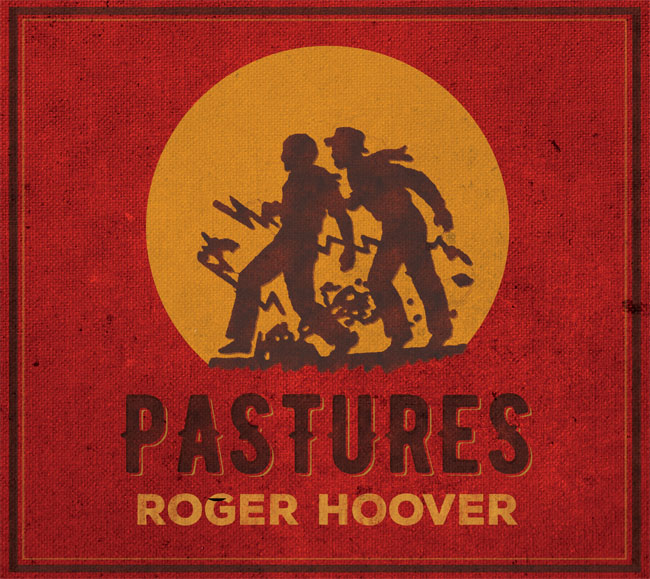Since I launched this blog in March, I have tried to write about as many wonderful things as I can, in essays, the podcast, and every Friday in the New Release Roundup. Try as I might, I can’t write about all the good stuff coming out. This will be my annual attempt to correct that. For the next ten days, I’ll be highlighting albums I missed in 2016. To cast an even wider net, I’ve enlisted some talented friends to write about some of their favorites this year. You can read that here.
Roger Hoover – Pastures
I have a great memory of the only time I’ve been able to see Roger Hoover live. The Ohio denizen was playing a club in Boston I’d never heard of, and I was a bit late in getting there. The venue was in the shadow of what is now the TD Garden, and I could hear Hoover a couple of blocks away, his voice blasting through the open front door and bouncing off the arena behind me. It was a beacon to find the place, and a spine-tingling moment. I had been sent Panic Blues, his second album as Roger Hoover and the Whiskeyhounds, the year before in 2005 and loved its passionate, CCR-like sound (though I believe Hoover would say he didn’t feel the CCR influence as a performer quite like I felt it as a listener). At the time, Hoover was still working on another batch of well-crafted, energizing Americana that would become Jukebox Manifesto. Unfortunately, I lost track of Hoover for a bit after that album and have some catching up to do with his work fronting The Magpies and The Hurt. But I was thrilled to see his Kickstarter for Pastures pop up in 2015, and even happier when I got my copy in the mail.
Hoover still has that voice, a compelling instrument to bring home his stick-to-your-ribs songwriting. It’s appropriate that Hoover quotes poet Gary Snyder’s “Hay for the Horses” in the album credits. The poet describes a sixty-eight-year-old man who, after delivering and stacking a loft full of hay, remarks to a helper, “I thought, that day I started/I sure would hate to do this all my life/And dammit, that’s just what/I’ve gone and done.” These are songs of love and work, sung by narrators scratching and clawing to find some satisfaction. Like Snyder’s delivery man, they are watching their lives go by, knowing they have to find what they need in what they’re given. In a hard day’s work, or a good day of fishing. “The money took some getting/The sweat was worth its weight in gold,” he sings on “Give What You Get Back.” Just staying alive is a Sisyphus-like venture, so it’s a touch ironic that that’s a recurring theme, made plainest in “St. John,” in which Hoover sings, “Sometimes you have to be alone/Sometimes you have to roll the stone/Back to the top of the hill again/And watch it roll back down again.” It’s a working-class sound, too – twangy, slightly overdriven guitars, organ with Leslie speakers swirling. Hoover quoted another icon – Pete Seeger – in his Kickstarter campaign, who asked, “Once upon a time, wasn’t singing a part of everyday life as much as talking, physical exercise, and religion?” That was Hoover’s goal, to put songs out into the world that people could sing in their everyday lives. And that’s what he’s done.
